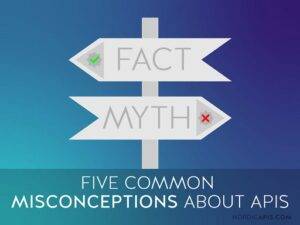In the world of entrepreneurship and business management, having a well-structured business plan is often considered a fundamental step toward success. Business plans serve as roadmaps, guiding companies toward their objectives and helping them navigate the complexities of the business world. However, it’s essential to have a clear understanding of what a business plan entails, and to debunk some common myths. In this article, we’ll explore the question, “Which of the following is not a true statement about business plans?” to clarify misconceptions and provide valuable insights.
What is a Business Plan?
- Definition of a Business Plan:
- A business plan is a comprehensive document outlining a company’s goals, strategies, and financial projections.
- It provides a structured approach to achieve these goals and secure funding or partnerships.
- Key Components of a Business Plan:
- Executive Summary: A concise overview of the entire plan.
- Company Description: Details about the company’s history, mission, and vision.
- Market Analysis: A study of the industry, target audience, and competition.
- Organization and Management: Information about the team and organizational structure.
- Products and Services: A description of what the company offers.
- Marketing and Sales Strategies: Plans for attracting and retaining customers.
- Financial Projections: Data on revenues, expenses, and profit forecasts.
- Funding Requirements: If applicable, the capital needed and how it will be used.
Common Misconceptions
- Business Plans Are Static:
- A common misconception is that business plans are rigid documents that never change. In reality, they should be dynamic and adaptable to market changes.
- Business Plans Are Only for Startups:
- While startups often use business plans to secure funding, established businesses can also benefit from them to set new goals and strategies.
- Business Plans Guarantee Success:
- Having a business plan is essential, but it does not guarantee success. Success depends on execution, market conditions, and many other factors.
- Length Equals Quality:
- A longer business plan is not necessarily better. The quality and relevance of content matter more than its length.
Notable Characteristics
- Tailored to the Audience:
- Business plans should be customized for different audiences, such as investors, lenders, or internal management.
- Realistic Financial Projections:
- Financial projections should be well-researched and grounded in reality, not overly optimistic or pessimistic.
- Risk Assessment:
- A thorough business plan should identify potential risks and provide strategies to mitigate them.
- Review and Update:
- Business plans need regular review and updates to reflect changes in the market and business environment.
Understanding the nuances of business plans is crucial for entrepreneurs and business professionals. The statement “business plans guarantee success” is not true, as success depends on various factors. Business plans are versatile tools that guide a company’s journey, adapt to changing circumstances, and require regular updates. Knowing the key components, avoiding common misconceptions, and tailoring the plan to the audience are essential for utilizing business plans effectively. Remember that a well-structured, realistic, and adaptable business plan can be a powerful asset in the world of business.



